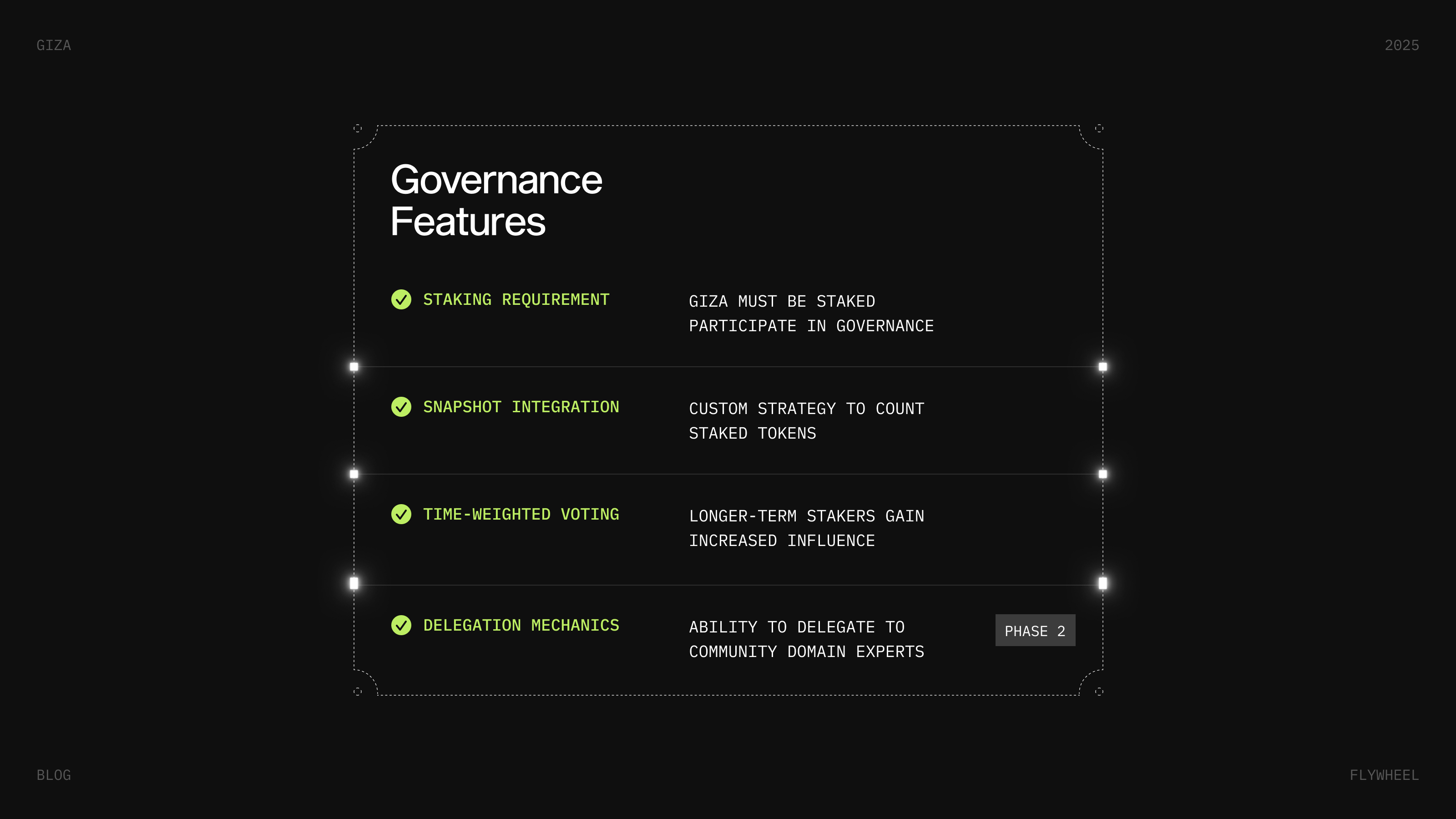Governance Overview
Giza's governance system is designed to solve the fundamental tension between expertise and representation that plagues most protocol governance. Rather than pursuing the illusion of direct democracy, where token holders vote on technical decisions they lack expertise to evaluate, Giza implements a council-based system with delegation that aligns governance power with both skin-in-the-game and domain expertise.
At its foundation, Giza's governance is built on three core convictions:
- Expertise Matters: Technical, economic, and security decisions should be made by those with relevant expertise, not distributed through token-weighted popularity contests.
- Skin-in-the-Game is Essential: Those with long-term alignment should have greater influence than transient token holders.
- Accountability Through Delegation: Direct representation through trusted delegates creates more effective governance than fragmented direct voting.
The resulting governance structure implements several key design principles:
- Domain-Specific Councils: Technical, economic, and risk management decisions are assigned to specialized councils with demonstrated expertise in those domains, rather than subjecting every decision to general votes.
- Time-Weighted Influence: Governance power scales with staking duration, ensuring those with long-term commitment have proportionally greater influence.
- Delegate-Centric Representation: The primary mode of governance participation is through delegate selection, while tracking on-chain executions of delegates for accountability.
- Transparent Execution: All governance actions are executed through verifiable on-chain mechanisms with clear trails.
- Emergency Safeguards: Critical protocol safety is protected through tiered authorization systems with appropriate checks and balances.
This model accepts the reality that most token holders lack either the time or expertise to evaluate complex protocol decisions. Instead of pretending otherwise, it creates mechanisms for token holders to select qualified representatives who are both accountable to their delegators and possess the necessary expertise to make informed decisions.
The governance system operates both off and on-chain, through a unified framework, ensuring consistent decision-making across all protocol deployments while maintaining the security guarantees of Ethereum for critical governance actions.
Giza's governance roadmap is designed in phases. In Phase 1, a Security Council maintains executive authority, while the community provides input through off-chain Snapshot votes and forum discussions, establishing a foundation of stability and responsiveness. Phase 2 introduces delegation, allowing token holders to select expert representatives who gain proposal rights, while specialized councils (Technical, Economic, and Emergency) emerge to provide domain expertise alongside a reduced-scope Security Council. The final transformation occurs in Phase 3, where the community-elected councils fully assume protocol governance across their respective domains, the Security Council dissolves its administrative powers to become solely an emergency circuit breaker, and the mature DAO operates through on-chain voting with clear delegation paths, completing the transition from centralized security to decentralized expertise.
